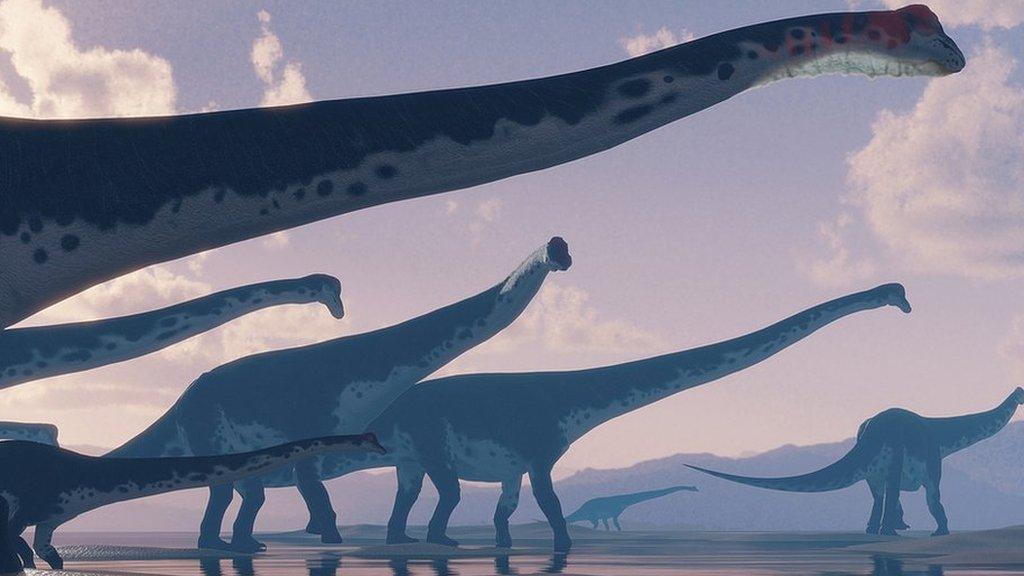Tanis: Fossil of dinosaur killed in asteroid strike found, say scientists
- Published
- comments
WATCH: Sir David Attenborough seeks expert help to understand the significance of the fossil leg
Scientists have showed off an incredible fossil of a dinosaur leg.
The limb, complete with skin, is just one of a series of amazing finds dug up from the Tanis fossil site in the US State of North Dakota.
But it's not just the amazing condition of the fossils that is impressing people.
Researchers also claim that the Tanis creatures were killed and buried on the actual day a giant asteroid hit Earth and wiped out the dinosaurs.
The day, 66 million years ago, was when the age of the dinosaurs ended and the rise of mammals began.
Very few dinosaur remains have been found in the rocks that record even the final few thousand years before the impact. To have a fossil from the asteroid impact itself would be extraordinary.
The BBC has spent three years filming at Tanis for a show to be broadcast on 15 April, narrated by Sir David Attenborough.
What did scientists find at Tanis?
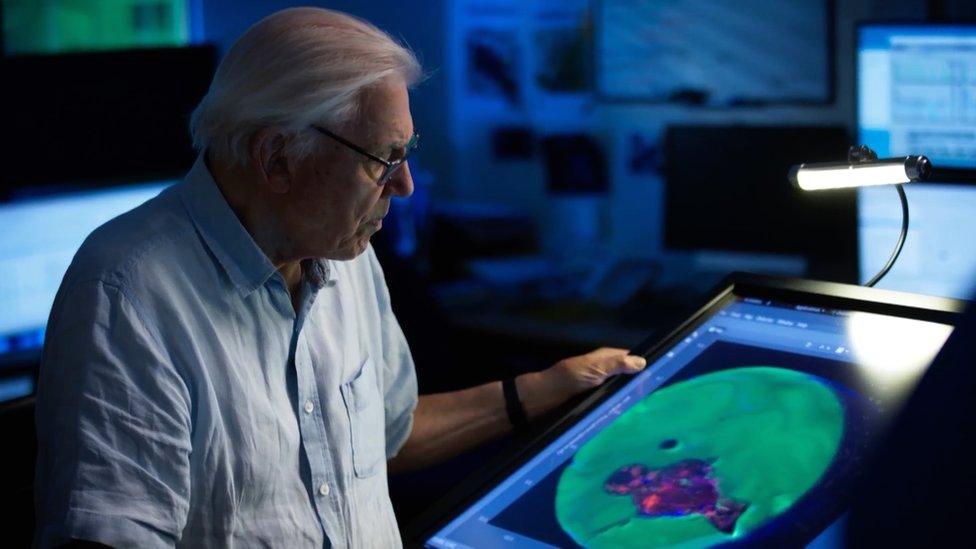
Sir David look at some of the finds from Tanis in a new TV show
Sir David will take a closer look at the discoveries, many that will be seen by the public for the first time.
Along with the leg, there are fish that breathed in rubbish and dirt after the asteroid impact.
Viewers will also see the remains of small mammals and the burrows they made; skin from a horned triceratops; and what appears to be a piece from the asteroid itself.
"We've got so many details with this site that tell us what happened moment by moment, it's almost like watching it play out in the movies.
"You look at the rock column, you look at the fossils there, and it brings you back to that day," says Robert DePalma, from the University of Manchester, who leads the Tanis dig.
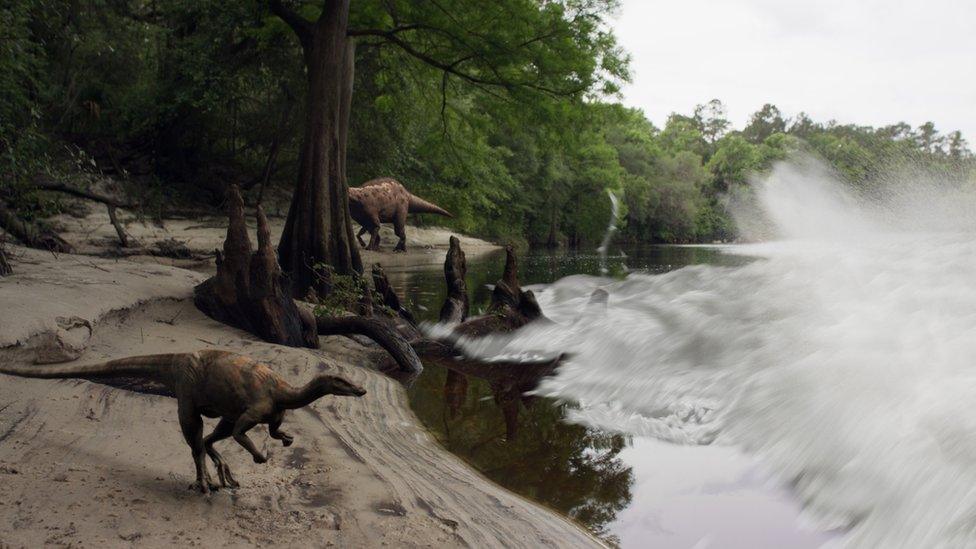
Artwork: The thinking is that a sudden rise in river water caused by the asteroid strike buried all the creatures at Tanis
It's now widely accepted that a roughly 12km-wide space rock hit Earth to cause the last mass extinction, which wiped out dinosaurs.
The impact site has been identified in the Gulf of Mexico, off the Yucatan Peninsula.
That's around 3,000km away from Tanis, but the force from the strike meant its devastation was felt far and wide.
Did the dinosaur die on the same day as the asteroid strike?
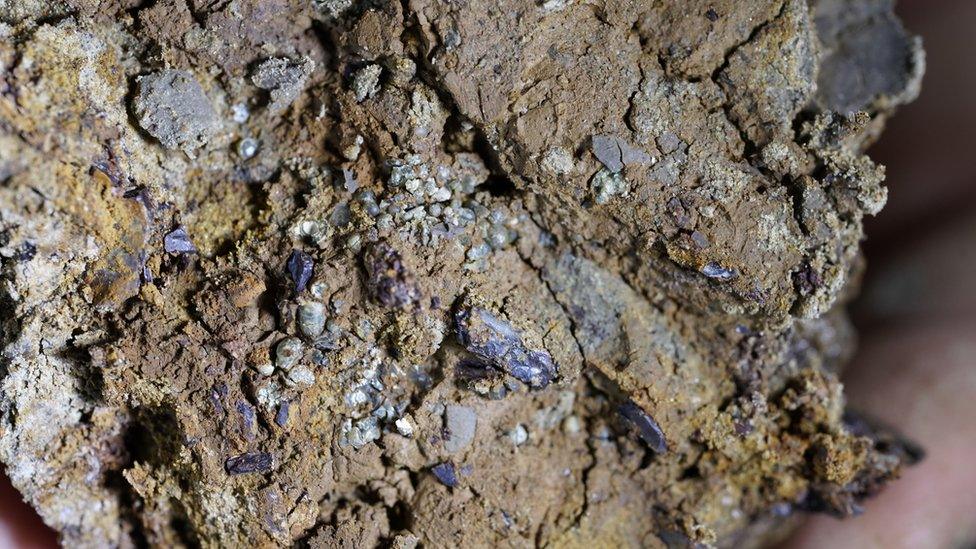
The dig site is full of rounded particles - debris kicked out from the impact site 3,000km away
The big question is whether this dinosaur - that the leg belonged to - did actually die on the day the asteroid struck.
The Tanis team thinks it very likely did, given the leg's position in the dig rocks. If that is the case, it would be an extraordinary discovery.
But Professor Steve Brusatte from Edinburgh University - one of the experts the BBC called in to help make the TV programme - says he's still not 100% sure.
He wants to see the arguments presented in more scientific peer-reviewed articles, and for some palaeo-scientists with very specific knowledge to go onto the site to give their independent opinion.
Dinosaurs: The Final Day with Sir David Attenborough will be broadcast on BBC One on 15 April at 6.30pm (UK time).
- Published6 March 2022
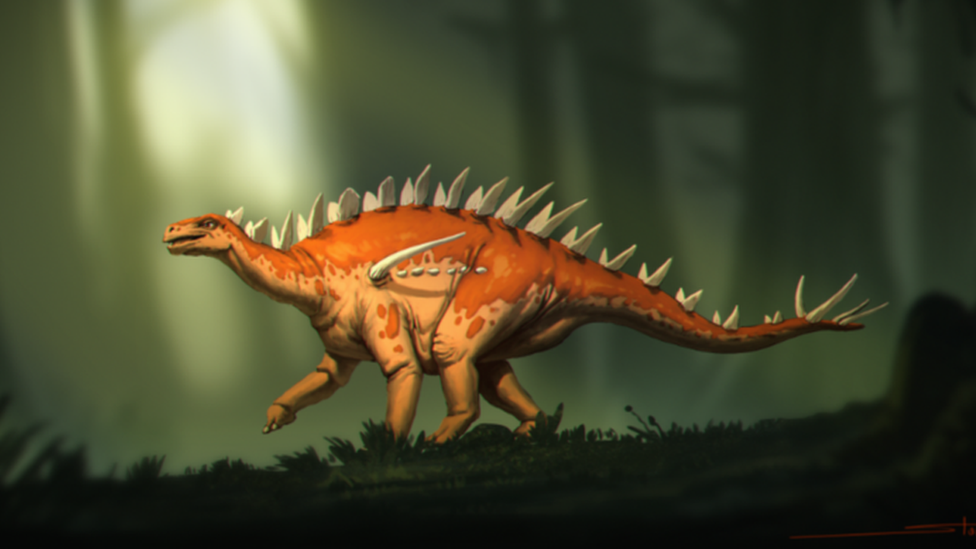
- Published15 February 2022
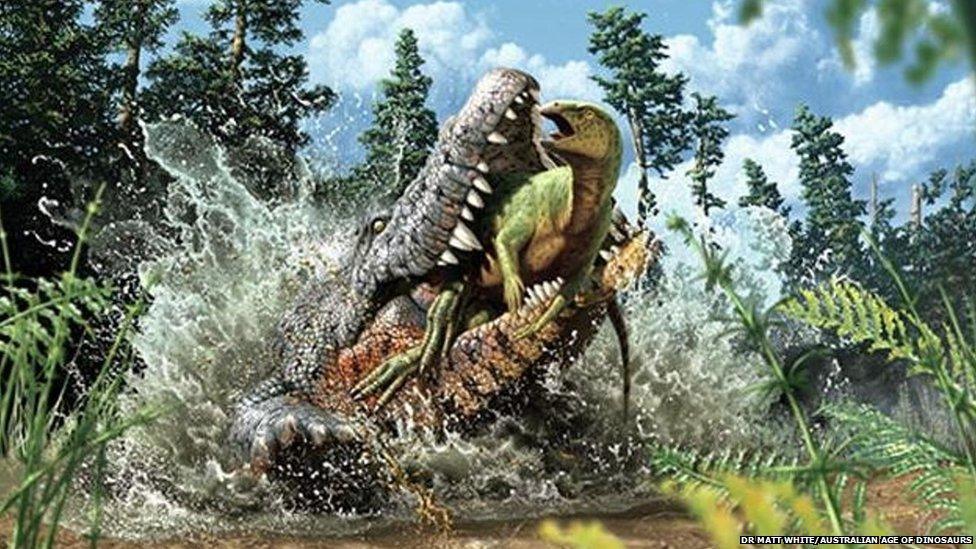
- Published15 February 2022
